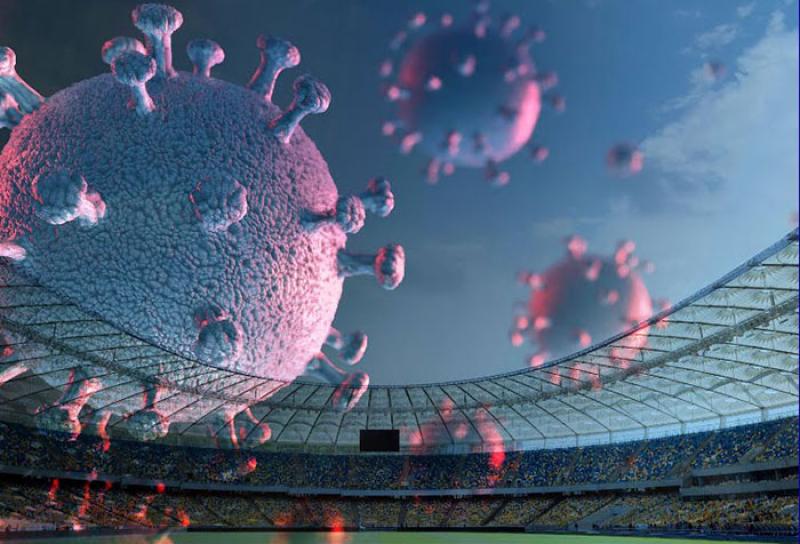
Expert Q&A: Jay Lopez on COVID-19 and Event Management
The College of Applied Health Sciences has experts in many areas that have been affected by the COVID-19 outbreak. Periodically we will ask these experts about how their areas of expertise have been impacted and what we can expect in a post-COVID-19 world. Today, we ask Jay Lopez, an RST graduate student and event manager for the City of Long Beach (Calif.), about how COVID-19 affects the event management industry.
Q: What alternative event formats could you use in the wake of COVID-19?
A: The leading thought process for controlled venue events, (ticketed with a perimeter fence) is to increase the venue size and lower capacity. This increases the square footage and the reduction in attendees allows for social distancing. Event managers will incur additional costs with lower revenue, which could affect how events do business. However, city agencies and event venues will prioritize safety and to minimize the spread of COVID-19.
Q: How do you handle a crisis at the event?
A: If a crisis were to arise, there are measures implemented prior to the event. All large events are mandated to have Fire and Police department personnel staffed on site. Additionally, staff and security are hired by the event. A command post is established by the City of Long Beach and is manned with fire, police and city staff. The command post staff can hear all communications via radios. If a crises arises, all communications and coordination is immediately handed off to the command post. If necessary, additional city services can be requested and diverted to the event to address any issues on site.
Q: How do you reassure event visitors about safety?
A: Effective marketing is essential and additional messaging is needed with the rise of COVID-19. Marketing will be critical to ease the concerns of the general public. Marketing materials should accurately depict the new policies and procedures implemented to abate the spread of germs. Safety visuals when arriving on site will play a vital role. In order for this to be successful, measures expressed via marketing must be present and visually represented on site. Marketing can assist to foster a sense of safety prior to arriving.
Q: What can you do when things happen beyond your control (flights cancelled, etc.)?
A: In the event industry, we always say, “Prepare for the unexpected.” Event managers can prepare and plan for months to ensure operations and logistics are correct and roll out smoothly. Sometimes, situations arise that were not accounted for, or are completely out of anyone’s control. Event managers think on their feet when problems arise and it derives from experience. Every situation is different as are events. Frankly, you deal with the problem when it occurs. There is no one size-fits-all solution. You cope and adjust with what you have.
Q: What are some best practices you recommend for event planners during a crisis like this?
A: Always consult your local health department and local authorities. Currently, the City of Long Beach is in the process of developing policies and producers relating to COVID-19. Events will be mandated to implement new policies and procedures in order to host an event in Long Beach. Additionally, event managers will need to conduct a throughout review of their operations. Inevitably, costs will increase due to the required policies and procedures. They will need to change operations and revise the scope of their events to make the necessary accommodations. Some events may not be able to cope with the additional items required of them due to costs, venue, operations, etc. Cancellation of the event may be the only viable option.
Q: What lessons can event planners take from previous situations, such as 9/11, Swine flu, H1N1, etc?
A: The event industry has not encountered a threat in the past such as COVID-19. Each and every situation calls for different accommodations. Event managers can study past situations and pull items that reflect current events. However, events by nature concentrate thousands of people in one location with close proximity to one another. Only time will tell if the implemented measures undertaken have a true effect on limiting the spread of COVID-19.
Q: What do you need to do after the event?
A: Post-event evaluations are critical to measure event participant’s comfort with new policies and procedures. Event managers need to take into account how participants felt on site. Did they feel there was enough handwashing stations? Was there enough hand-sanitizer dispensers? Did they feel social distancing was accommodated? Did people follow the facemask requirement?
Event managers shall also provide feedback on how well the new policies were implemented. Were the lines long stations? Do we need additional staff for future events to manage? Did people follow the rules on personal protective equipment? Revenue must be measured. Did the event make sense to hold in terms of expenditures and revenue?
Comprehensive evaluations are critical in the new era of events. Costs associated with COVID-19 will be the guiding factor on how events cope moving forward. This will be the new norm until/if a vaccine is created and we can reach herd immunity.
